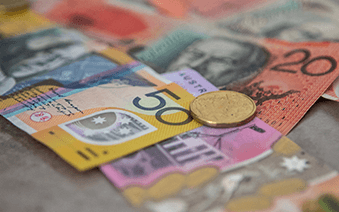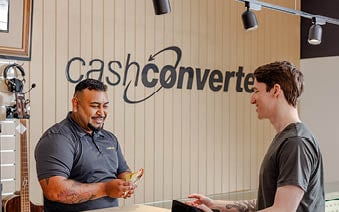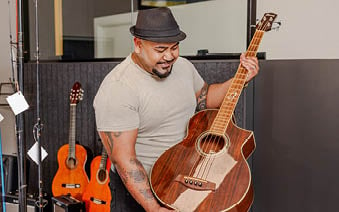Teaching your kids how to manage money can start before they even go to school. From opening a kids savings bank account to showing them how to shop savvy, here are some simple tips to teach kids how to handle money.
One of the earliest experiences kids will have with handling their own money is a school bank account. School banking is easy to sign up for from the very early years, and can teach children that putting a small amount away every week can reap rewards. Get your kids to fill in their own bankbook and hand in the deposit at school each week – they’ll start to understand the fundamentals of how banking works, and that the more money they put in, the better the interest. Having a kids bank account can help kids turn into lifelong savers.
From around the age of six, children that earn pocket money for household chores learn about the relationship between effort and reward (especially when they fail to do their jobs and miss out for the first time!). As the kids get older, you can increase the amount they earn but also get them to take on extra costs – like trips to the movies or canteen lunches. This will teach them how to manage money and budget for necessities and luxuries. Bonus tip: encourage kids to set aside a certain amount of their pocket money to put into a bank account, and watch the balance grow.
It might sound crazy, but encouraging your kids to spend their pocket money will actually help them learn how to manage money. When you suggest that your child saves towards something they really want, they’ll learn how to set and stick to a budget. Keep it interesting by helping them pick a realistic goal – they’ll get bored well before they’ve saved up for a $100 bumper Lego kit at $2 per week, but aiming for a $6 soft toy (or Lego minifig) is a great way for kids to feel the buzz of achieving a savings goal. Want to make it more fun? Get kids to create and colour – or download and print – a savings chart. They will love putting stickers on a chart each time they make a ‘deposit’ into their piggy bank.
Kids rarely see cash anymore and could be forgiven for thinking that all you need to buy something is a piece of plastic at the check-out. Take your kids shopping and use cash when you shop or pay bills. School-aged children can help you count the money out and hand it over. If you have kindy kids or preschoolers you can play shops at home using real cash – grab the cans and boxes from your kitchen cupboards and set up a mini-mart, taking it in turns to be the checkout person and the shopper.
Managing money doesn’t have to be boring. Traditional board games like Monopoly encourage kids to learn about money, so get playing! Or, if you’ve got tech-savvy kids, download some kid-friendly apps designed to teach money skills. Not sure where to start? Savings Spree is a multi-award winning, highly entertaining educational app aimed at children aged around seven years. The game rewards kids for making smart choices with their money – for example, they are rewarded for choosing to drink tap water over bottled, or walking the dog for entertainment.
From early primary school onwards, let the supermarket be your kids’ financial tutor (with your help, of course). Explain to your kids why and how you choose to buy particular items; children will learn practical skills such as considering the cost per kilo, or buying cheaper generic brands so you can spend up on quality items when you need to. As your kids get older, ask them to do some basic shopping from a list, using a set amount of spending money. This will give them first-hand experience at buying within a budget.
Involve your kids in the bill-paying process. It’s good for children to understand what will cost them money as an adult and that they will be paying for it themselves. Also look out for teachable moments – if you get a large electricity bill, discuss as a family how you will reduce the cost in the future, and how paying the bill will affect your household budget in the short-term.
A part-time job will give your child a greater sense of financial control because not only will they do the hard work, but they’ll make the decisions about how the money gets spent. When kids put in the effort to earn cash, they learn to be a lot more selective about what they spend it on – after all, they’ll know what’s involved in earning it all over again when they’re back to a zero balance. Encourage working kids to put a set amount of their income, such as 50 per cent of what they earn, into a savings account, and build towards a longer-term goal. For example, if you’re going away on a family holiday, they could save up their own spending money.
However you choose to teach your little ones about money, starting young can help create a positive relationship with money and improve their understanding for the years to come.

Answering your questions about loans and staying savvy

Get more bang for your buck with these handy tips.

Need some advice that’s not about cash? We can help.
Your cart is empty.